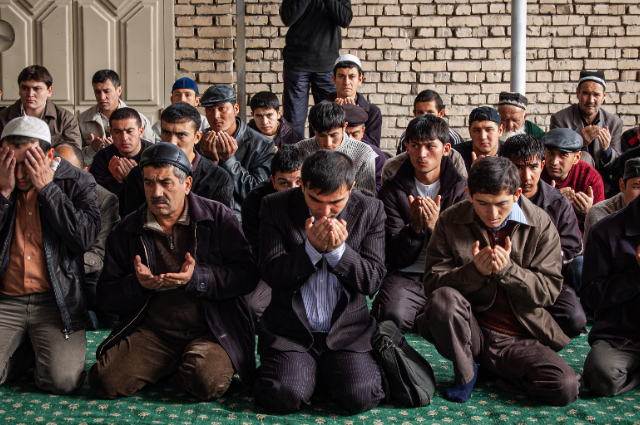
Photo by Joel Heard on Unsplash
Milad un Nabi, also known as Mawlid or the Prophet's Birthday, is a significant and joyous occasion for Muslims around the world. It commemorates the birth of the beloved Prophet Muhammad (peace be upon him), who is regarded as the final messenger of Allah in Islam. This celebration holds immense spiritual and cultural importance, serving as a reminder to Muslims of the exemplary life led by the Prophet and the timeless lessons he left behind.
The central message of Milad un Nabi is clear and profound: to be a true follower of Islam, one must strive to live in accordance with the Sunnah of the Prophet Muhammad. The term "Sunnah" refers to the way of life, actions, sayings, and approvals of the Prophet, which provide a comprehensive guide for Muslims on how to lead a virtuous and righteous life.
One of the key aspects of the Prophet's Sunnah is his kindness. The Prophet Muhammad (peace be upon him) was known for his exceptional kindness and compassion towards all living beings. He displayed kindness not only to humans but also to animals. His gentleness and concern for the well-being of others serve as an enduring source of inspiration for Muslims to practice kindness in their daily lives.
Humility was another hallmark of the Prophet's character. Despite his high status as the final messenger of Allah, he remained humble and approachable. He never sought worldly fame or power and always put the welfare of others ahead of his own. This humility serves as a powerful reminder to Muslims to be humble in their interactions with others and to avoid arrogance and pride.
Compassion is a central theme in the life of the Prophet Muhammad. He was deeply empathetic and caring, always ready to help those in need. His compassion extended to the poor, the sick, and the marginalized, emphasizing the importance of caring for the less fortunate in society. Muslims are encouraged to follow this example by showing compassion and empathy towards those who are suffering.
The unwavering faith of the Prophet Muhammad is a source of inspiration for Muslims. His unshakable belief in Allah and his dedication to spreading the message of Islam, despite facing numerous challenges and hardships, demonstrate the importance of faith and perseverance. Muslims are reminded to strengthen their faith and remain steadfast in their beliefs, even in the face of adversity.
Patience, or "Sabr" in Arabic, is a virtue emphasized in the teachings of Islam. The Prophet Muhammad (peace be upon him) exemplified patience throughout his life, enduring trials and tribulations with grace and resilience. Muslims are encouraged to cultivate patience in their lives, especially during difficult times, and to trust in Allah's plan.
Love and respect for all are fundamental principles of Islam, and the Prophet's life is a testament to these values. He taught that every human being deserves love and respect, regardless of their background, religion, or social status. Muslims are reminded to treat others with kindness and respect, following the example of the Prophet.
As Muslims celebrate Milad un Nabi, it is not merely a time for joyous festivities but also an opportunity for deep reflection and commitment. It is a time to renew one's dedication to following the Sunnah of Rasool (the Prophet) in all aspects of life. By doing so, Muslims honor the Prophet's legacy and draw closer to the path of righteousness and compassion.
Actions often speak louder than words, and the best way to commemorate the Prophet's birthday is by embodying his teachings in our daily lives. This means striving to be kind, humble, compassionate, patient, and respectful in all our interactions. It means standing up for justice and fairness, as the Prophet did throughout his life.
In conclusion, Milad un Nabi serves as a profound reminder to Muslims of the exemplary life led by the Prophet Muhammad (peace be upon him). It encourages them to emulate his qualities and teachings, fostering a more compassionate, just, and virtuous society. As Muslims celebrate this special occasion, they do so with the hope of becoming true followers of the Prophet and living their lives in a manner that reflects his noble character and unwavering faith. Through their actions, Muslims aim to spread love, kindness, and goodwill to all, just as the Prophet did during his lifetime, making the world a better place for everyone.
